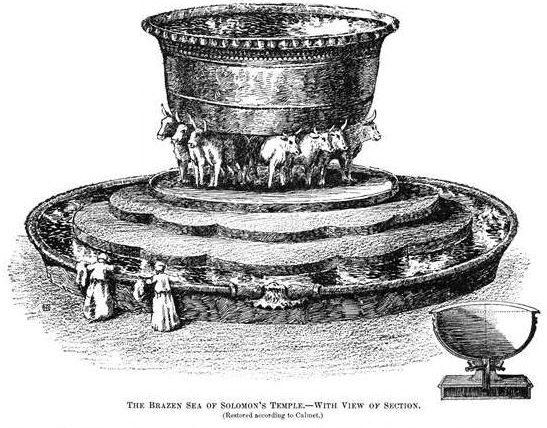As I see it, based on the nature of ourselves and our environment, our selves and our environment required a creator (even if we were created by said creator through or partly through evolution).... but for a creator to not require having been created, said creator would have self-created, but also have always had the potential to do so -would always have "been" in some state.
That is not a conclusion, but it is my best reasoning at this point.
We know that WE are not the initial creator because we know we were created by something -even if we credit "evolution" and say it was not initiated by an intelligence.
We also know (or, at the very least, are at least quite sure) that what we are created from was created by what we call the big bang.
What is written of God in scripture indicates something which might be described as self-evolution -but not in the sense of becoming more fit to survive. He has always been perfectly fit to survive, but has caused more reason to survive/survives to cause more reason/whatever.
His overall intent is said to essentially be to increase love -and he does so by reproducing himself (in the "children of God").
I considered what is written about God -what those words actually say -and also the present state of things.
We know we exist. We know we can create. We are beginning to realize we can eventually create beings similar to ourselves.
It appears (to man, generally) that we evolved, but we evolved to create -and cannot say for certain whether evolution was set in motion by a creator.
It is written that the things of God are apparent in what was made, so perhaps evolution is analogous to God's self-evolution.
We wonder about our origin -we know we are not responsible for our own existence -but God would be aware of the fact that nothing was before him -or aware of his self-origin... if indeed that is what happened.
For God to be all-knowing, all-powerful, etc.... his personality would essentially be the mind of all things, and all things his body.
In scripture, God (at least the Word who became Christ) is able to appear in different ways -in different bodies -but is not limited to those bodies (unless by choice for a time).
We are said to have the potential to be given a body similar to that employed by Christ/The Word (who is said to have actually done the creating) when he created all things... ( "like unto his glorious body, according to the working whereby he is able even to subdue all things unto himself.") -then we see the glorious being whose back parts Moses saw -then a pillar of fire and smoke -and then we see Christ in a human body -so his mind is able to be represented by -presented through -the environment in any way, and the Father's mind would essentially be represented by all things.
It is also said that God created us to live in us, and us in him, etc.... So our minds would essentially a part of God's mind that he caused to be separate -our bodies separate from his, etc..... by his decision.
That all sounds a bit mental -but it is essentially a multiple personality ORDER rather than disorder.
In order for us to create something new to him, he necessarily -by decision -said that there would be certain things he would keep himself from knowing -and essentially gave over some power by causing us to be able to decide certain things.
God is said to be eternal (as Melchisedek -who was also the Word, Christ, I AM, etc. -is described.... without descent, without beginning of days or end of life), but what is not described is his state throughout eternity.
If something cannot come from nothing, then there was never nothing.
If there was also never no one, perhaps the state of things is indicative of the state of that one.
There would necessarily have always been something to act upon, and someone to act upon it -so the nature of things would reflect the nature of the mind of the one acting.
He calls himself I AM -which doesn't just mean he has always been, but also essentially means he is everything.
God is said to be able to make new things -to create, so he must be able to think new things into being which once were not.
Of Christ it is written that of the increase of his government there will be no end -which makes me wonder how little God might have ruled in the past.
He could not be ruler of the universe before he created the universe -though he inevitably would be.
So -if things are ever-increasing, it makes me wonder how much they can be reduced moving backward in time.
Complicating matters is the statement that the Word (who became Christ) was in the beginning with the Father -and it is stated that God can conceal things from him (such as the hour of his own return).
An eternal God would necessarily be irreducible at some point -but at what point? In what state?
I'unno 
That also brings up the question of self-awareness. Even though God always WAS, was he always able to say "I AM"?
If so... how is that possible?
We become self-aware at a certain point, but did God always sense himself and his environment to some degree (some initial "ping" returned leading to more) -, then make more of himself and his environment to be aware of -or was the initial state of all more complex than that?
A certain degree of complexity must have always been -but how simple could that complexity have once been? How complex must simplicity have once been to lead to this?
Some things we'll just have to wait to find out.

